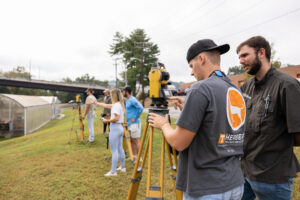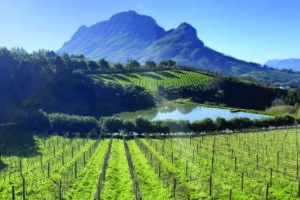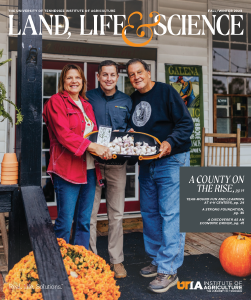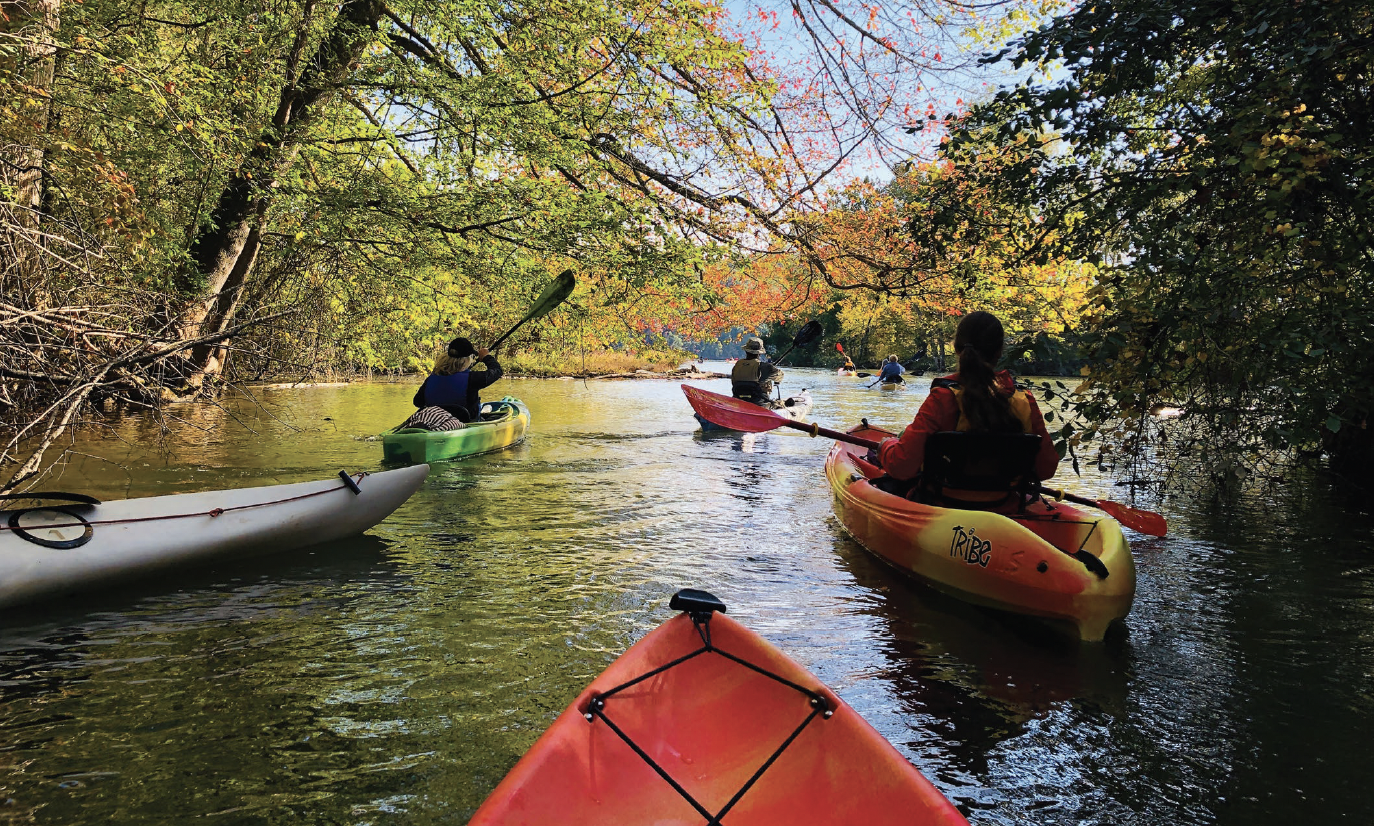
The Tennessee RiverLine is making substantial strides to strengthen the outdoor community in the region
The Tennessee River begins in Knoxville at the confluence of the French Broad and Holston rivers before winding its way through lush valleys and picturesque landscapes in four states, serving as a vital artery of life, culture, and industry for the region. The Tennessee RiverLine—an ambitious initiative of the UT Institute of Agriculture with principal partners UT Knoxville, UT Extension, and Tennessee Valley Authority—is not only celebrating this iconic waterway but is repositioning it for a new era of economic impact for the Tennessee Valley as a driver of a robust and resilient outdoor economy.
RiverLine began in 2016 as a student project in a studio course offered by Brad Collett, professor in the Herbert College of Agriculture, faculty member in the Department of Plant Sciences and the UT School of Landscape Architecture, in collaboration with the UT College of Architecture and Design. The novel idea brings the university’s land-grant mission to life in partnership with UT Extension to deliver Real. Life. Solutions. in community development. As director of the Tennessee RiverLine, Collett (BS ornamental horticulture and landscape design ’01) now leads a team of twelve full-time staff that provides technical assistance and creative capacity to forty-six cities and counties in three states, working collaboratively to realize the vision for North America’s next great regional trail system.
Since 2021, more than 130 Tennessee RiverLine recreation and stewardship events have been held in communities along the river’s 652-mile reach. These events, from kayaking excursions to nature walks and educational programs, have welcomed close to 4,000 participants, each gaining a deeper appreciation for its significance as an integral part of river communities and the region. These individuals support economic growth through ongoing outdoor recreation activities.


The Tennessee RiverLine is making substantial strides to strengthen the outdoor community in the region. The Paddlesports Leadership Academy empowers participants from historically underrepresented and excluded identities with the skills necessary to be outdoor recreation leaders. Some of its graduates, like Shawanna Kendrick of Chattanooga, are owners, employees, or volunteers of outdoor recreation organizations working along the Tennessee River. Kendrick started The H2O Life in Chattanooga to bring together women of color who enjoy hiking, biking, paddling and other outdoor activities. “RiverLine has made great strides in helping us promote outdoor recreation and wellness. I, personally, was afforded an opportunity to earn American Canoe Association certifications through Paddlesports Leadership Academy,” she says. “As a result of that knowledge, I’ve been able to develop programming introducing Black women and girls to our local waterways.”
The Tennessee RiverLine has launched new resources to help paddlers, boaters, anglers and other river users plan safe and enriching Tennessee River experiences. The “Plan Your Journey” trip planning tools include an interactive web map detailing the locations and additional information about boat launches, public lands, campgrounds, outfitters, marinas and more, along with suggested paddling trip itineraries in Tennessee River communities.
Beyond the immediate impact of events and programs, the Tennessee RiverLine is also a catalyst for new investments in outdoor recreation infrastructure. To date, a total of twenty-two infrastructure projects inspired by the Tennessee RiverLine’s vision have been completed, are under construction, or are in design, supported by $2.75 million in third-party grants. These investments in riverfront parks, trails, campgrounds, and other amenities will enhance the recreational infrastructure along the river and the quality of life that drives job creation and retention, and stimulates local economies.
“The impacts of the Tennessee RiverLine to date demonstrate UTIA’s dedication to Real. Life. Solutions. through UT Extension and the university’s commitment to be an exemplar of the modern land-grant institution,” says Collett. “These commitments, along with sustained support from TVA and partners across the region, enable us to make progress toward inspiring resource stewardship, improving public health, enhancing equitable river access, and accelerating economic development and entrepreneurship.”
A 2022 study conducted by the UT Howard H. Baker Jr. Center for Public Policy, in collaboration with the University of Alabama Center for Economic Development, paints a vivid picture of the economic opportunity on the horizon, principally driven by anticipated growth in paddlesports on the Tennessee River. Currently, it is estimated that approximately 285,000 paddlers visit the Tennessee River annually. An additional 808,000 paddlers are expected to visit as a result of the Tennessee RiverLine initiative. Increased access to active lifestyle opportunities offered by the Tennessee RiverLine will lead to health-related economic impacts such as health care cost savings and increased worker productivity, according to the study. Enhanced quality of life in river communities through Tennessee RiverLine experiences and new infrastructure investments will increase community competitiveness for new job creation while supporting workforce retention.
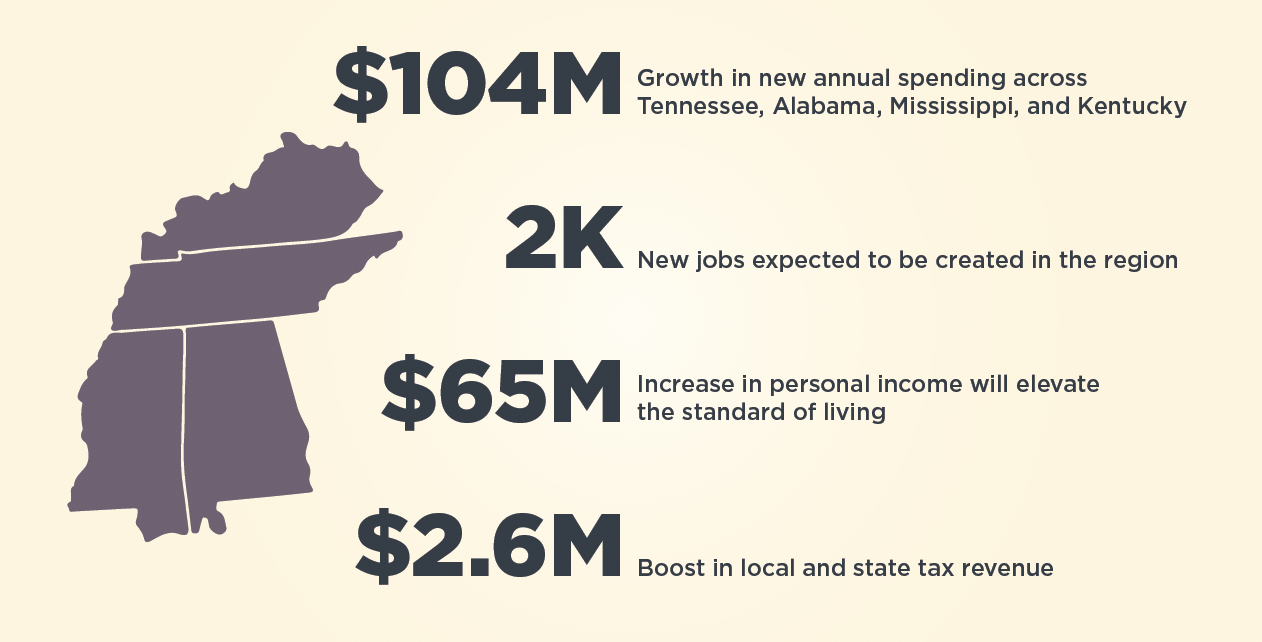
The Tennessee RiverLine, with its current achievements and immense potential, stands as a shining example of how the power of partnerships, community development, and sustainable economic growth come together in harmony through a university initiative to create a future where every Tennessean can thrive.
More information on the Tennessee RiverLine can be found on their website.
Explore More on
Features
MORE FROM THIS ISSUE


